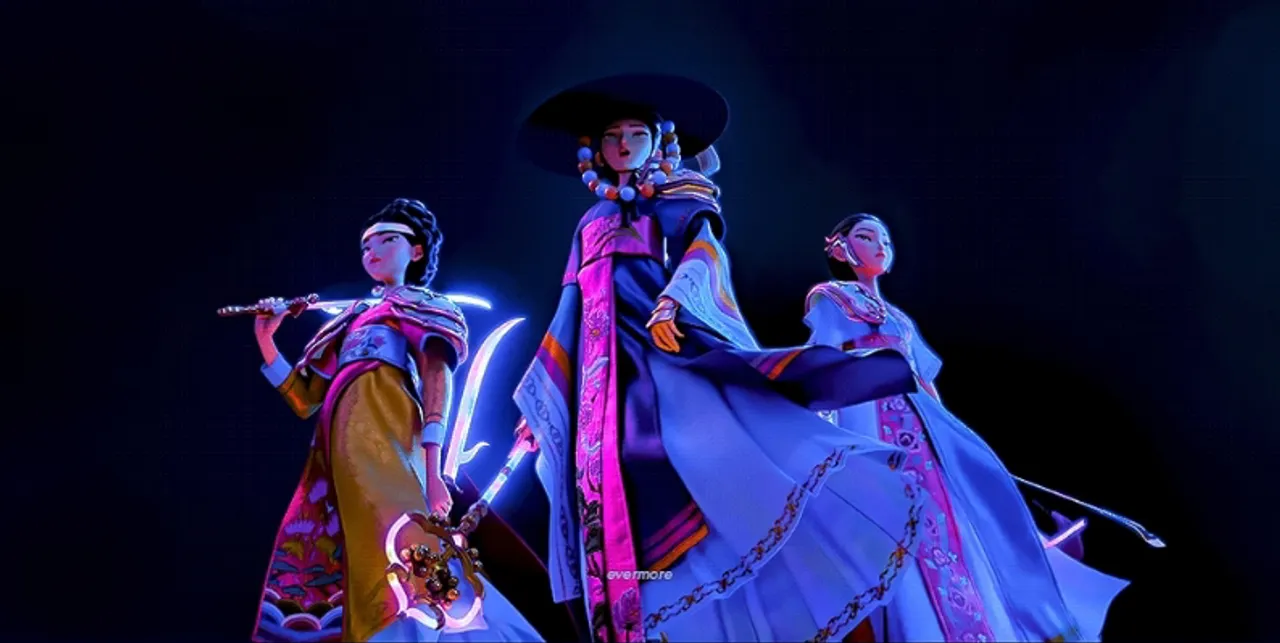
K-pop Demon Hunters OST Analysis|Score Suite Lyrics and Pansori-Style Vocal
🎶 K-pop Demon Hunters OST Analysis: Meaning Behind Score Suite
The Netflix anime K-pop Demon Hunters drew global attention with its bold mix of K-pop culture and demon-fighting fantasy. While I haven’t watched the full episodes on Netflix, I’ve seen enough short clips on YouTube to understand the characters and musical tone.
One standout is the main theme for the first-generation hunters, Score Suite. Though short, this OST leaves a strong impression with its poetic lyrics and emotional depth.
📝 Original Korean Lyrics
홀로 어둠을 밝히랴
우리 노래 부르리라
굳건한 이 소리로
이 세상을 고치리라
🔍 Lyrics Interpretation & Narrative Connection
📌 These translations are personal interpretations based on the original Korean lyrics—not official subtitles.
Score Suite uses “song” as a metaphor for fighting evil and restoring the world. In just four lines, the lyrics convey themes of despair, unity, willpower, and healing, while also reflecting the anime’s core worldview. The language choice is also worth noting—this song adopts literary-style expressions rather than casual speech, enhancing the dramatic tone.
-
홀로 어둠을 밝히랴
The key phrase here is the Korean verb ending ~하랴 (~harya). It’s a literary, rhetorical question ending rarely used in modern speech—more common in Korean pansori, poetry, and classical literature. Grammatically, it’s a negative rhetorical form, meaning “How could I…?” or “Would I be able to…?” It expresses emotional tension and dramatic helplessness.
This line—“How could I light the darkness alone?”—is not merely poetic. It also reflects a core setting in the anime: the act of sealing a Honmun (혼문, 魂門), a gateway of chaos, is never meant to be done alone. It must be achieved through harmony and teamwork.
In other words, this line implies that the Honmun can only be sustained through the unity of a team of hunters, not an individual effort. That message is powerfully condensed into a single, poetic line.
-
우리 노래 부르리라
In contrast to the isolation of the first line, this one introduces “we”—a shift from solitude to solidarity. “부르리라 (bururira)” is a literary future-tense ending that conveys a firm resolution. Here, “song” is not mere music—it’s a spiritual act, a weapon that heals and seals the Honmun.
-
굳건한 이 소리로
The word “굳건한” means unwavering or solid, representing the collective strength and harmony of the team. This line emphasizes that what protects the world is not a solo hero’s strength, but the power of shared resonance. In this world, music becomes both an emotional weapon and a spiritual shield.
-
이 세상을 고치리라
The verb “고치리라” means “we shall fix/heal.” It’s not about revolution or destruction, but rather restoring a distorted world to its rightful order. The song’s philosophy is about purifying, not overpowering.
Altogether, the lyrics blend literary tone and narrative function, embodying the anime’s key themes of healing, unity, and cultural resistance. Score Suite is far more than an OST—it’s the compressed heart of the story.
🎙️ Pansori-Style Singing? Musical Interpretation of Score Suite
Another noteworthy point is the vocal technique used in this OST. It doesn’t sound like a typical K-pop vocal line. Rather, it carries a rhythm and flow reminiscent of pansori (traditional Korean narrative singing) or lyrical storytelling.
The first line, “How could I light the darkness alone?”, carries a sense of han (한)—a deep, often sorrowful emotional tone in Korean culture. The delivery feels like a sori-gun (traditional singer) reciting a story, with controlled dynamics and breath patterns.
It even evokes the timing of Korean rhythms like Jinyangjo or Jungmori, where silence and breath play key roles in emotional buildup.
In this sense, Score Suite is a rare example of a global K-pop-styled OST infused with Korean traditional vocal sensibility.
If this vocal style resonates with you, here are some contemporary Korean artists who blend traditional and modern genres:
- Kim Yul-hee (from Ak Dan Gwang Chil) – known for powerful vocals mixing folk with rock and synth
- Seodo Band – a pansori-rock fusion group with intense narrative vocals
- Lee Hee-moon – a male folk singer combining performance and minyo
- Song So-hee – a more traditional voice now developing her own cross-genre path; probably the most recognizable name on this list
🌏 Korean Emotion Meets Global Storytelling
The structure of Score Suite blends modern EDM and K-pop melodies with traditional Korean storytelling and emotion. It’s not just an OST, but a cultural statement embedded in sound.
Music in this anime is more than accompaniment—it’s part of the narrative, the mythology, and the battle itself.
✍️ Final Thoughts
K-pop Demon Hunters is not just an anime with flashy action and catchy music. It’s a story about restoring balance and healing the world through culture and sound.
Score Suite serves as a symbolic introduction to this philosophy, combining tradition and modernity, East and West, sound and story.
Rather than just listening, I invite you to interpret OSTs like this—to see them not as background, but as cultural texts in themselves. That’s when you’ll feel the true depth of Korean storytelling.
Comments

A&B Network
Sharing practical tips and personal experiences from travels, side projects, and everyday life.
Loading subscribers...